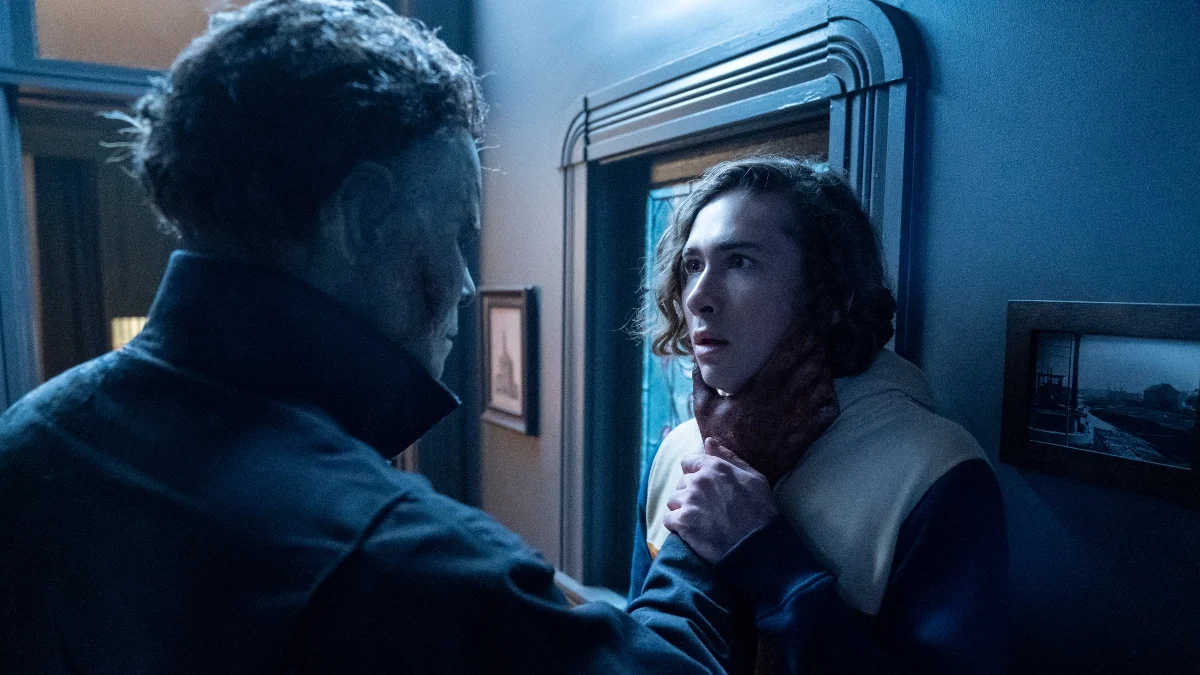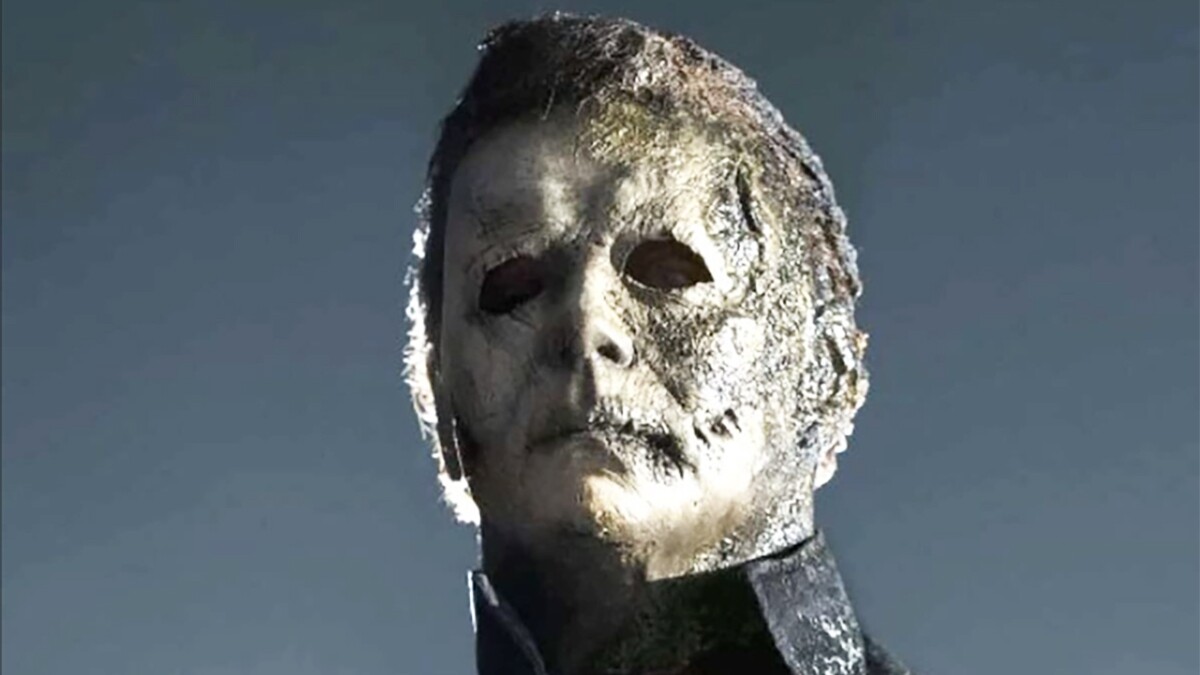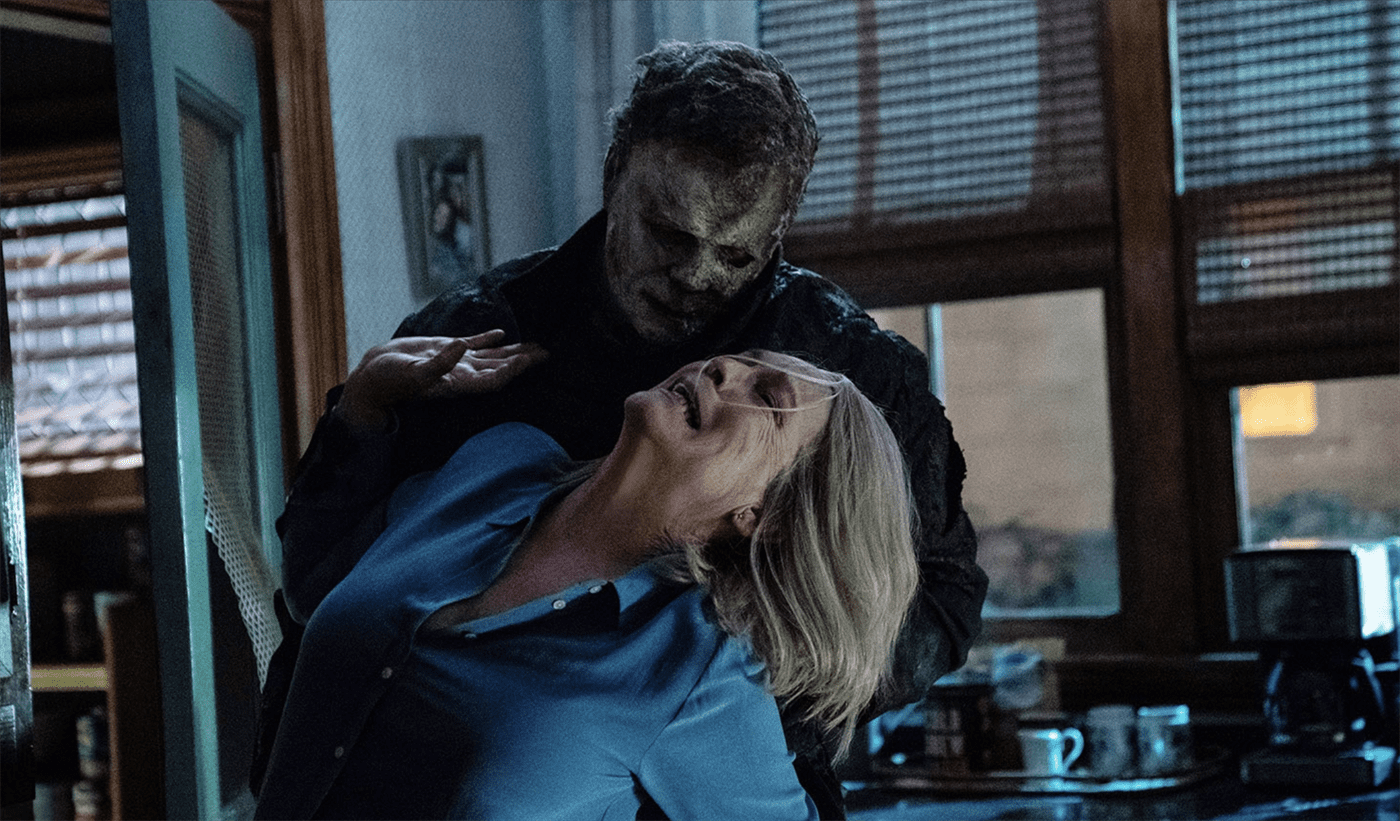SPORT & LIFESTYLE NEWS
Is Michael Myers Supernatural?
Michael Myers, the infamous antagonist from the “Halloween” franchise, is a character who has haunted the nightmares of many since his debut in John Carpenter’s 1978 film. One of the most frequently asked questions about this enigmatic figure is: “Is Michael Myers Supernatural?“ To fully grasp the nature of Myers, we need to delve into his origins, the evolution of his character, and the various theories that have emerged over the years.
Is Michael Myers Supernatural?
Michael Myers first appeared in the slasher classic “Halloween,” where he was portrayed as a seemingly ordinary child who committed a horrific crime by brutally murdering his sister. This shocking act of violence led to his institutionalization, where he remained silent and detached for 15 years. After escaping from the sanitarium, he returns to his hometown of Haddonfield to continue his terrifying spree of murders. From the outset, audiences were captivated by the mystery surrounding Michael Myers and the question of whether he is truly supernatural or not.

In John Carpenter’s original vision, Michael Myers was meant to be more of an enigmatic human figure rather than a supernatural being. He was designed to represent a pure, unexplainable evil—an almost elemental force that could not be easily understood or reasoned with. Carpenter intentionally left much of Michael’s background and motives unexplored, creating a character whose evil seemed to stem from a deep, inexplicable darkness within him, rather than any kind of otherworldly influence. This choice allowed Michael Myers to stand out from other horror villains of the time, as he was not driven by revenge or a personal vendetta but rather by an innate, almost primal need to kill.
The ambiguity surrounding Michael’s nature has been a source of fascination and debate among fans for decades. Some view him as a mere human—a disturbed individual whose capacity for violence and survival is amplified by his psychological state. However, his ability to endure extreme physical harm and continue his relentless pursuit of his victims suggests that there might be something more at play. This duality has made Michael Myers an enduring figure in horror, allowing for multiple interpretations of his character. Is he a man with an extraordinary resilience, or is there something supernatural fueling his murderous rampage? This uncertainty has kept audiences intrigued and scared, as Michael Myers continues to defy easy categorization, straddling the line between human and supernatural.
Theories and Interpretations

The debate over whether Michael Myers is truly supernatural or not is fueled by several theories:
- The Pure Evil Theory: Some fans and scholars view Michael Myers as a representation of pure, unexplainable evil—an entity that goes beyond human comprehension. According to this theory, Michael is not just a man but an embodiment of malevolence itself. He exists as a force of nature, driven by an inner darkness that cannot be fully understood or explained by conventional means. His motives remain unclear; he kills indiscriminately, without remorse, empathy, or a clear purpose, making him an unpredictable and terrifying presence. Unlike typical human villains who might have motives rooted in revenge, jealousy, or madness, Michael’s actions lack any discernible logic or emotional basis.This theory further suggests that while Michael Myers may appear human on the outside, his essence is something far darker and more sinister. His incredible resilience and seemingly supernatural endurance—surviving gunshots, stabbings, and even fire—defy the normal limits of human capability. This almost indestructible nature supports the idea that Michael is more than just a person; he is an inhuman force that cannot be stopped by conventional means. His ability to withstand physical injuries that would be fatal to any other person suggests a detachment from the physical limitations that define ordinary human beings.Proponents of the Pure Evil Theory argue that Michael Myers is a symbol of the unknowable and the uncontrollable aspects of evil that exist in the world. He represents the fear that some evil cannot be reasoned with or destroyed—that it simply exists, lurking in the shadows, waiting to strike without warning. This interpretation aligns with the original vision of John Carpenter, who described Michael as “The Shape,” a faceless, emotionless figure that exists only to bring death and chaos. His lack of a backstory, personal vendetta, or any explanation for his actions serves to amplify the sense of fear and unease he generates. By remaining an enigma, Michael becomes a canvas onto which viewers can project their darkest fears, embodying the concept of evil as an omnipresent, unyielding force that defies human understanding.This view of Michael Myers as pure evil has also led to his enduring status as a horror icon. Unlike other villains whose origins or motivations might be explained away, Michael remains a mystery—a blank slate of terror whose actions are driven by something that transcends normal human experience. This makes him all the more terrifying because, in the world of “Halloween,” there are no rules or logic to his killings, no way to predict or prevent them. The idea that evil can be so absolute and so relentless is what makes Michael Myers such a compelling and frightening figure in horror cinema.
- The Cult of Thorn: In “Halloween: The Curse of Michael Myers” (1995), the series introduces a controversial explanation for Michael Myers’ seemingly supernatural abilities known as the “Cult of Thorn” theory. According to this theory, Michael’s powers are not merely the result of an unexplained evil or an unusually resilient human nature but are instead the product of a druidic curse placed upon him. The Cult of Thorn, a mysterious group of druids, worships an ancient rune symbol called “Thorn,” which is believed to be associated with chaos and destruction. This curse forces Michael to kill his entire family as a form of sacrificial offering, supposedly to protect the cult and bring prosperity to those who invoke its power.The Cult of Thorn theory adds a mystical dimension to Michael Myers’ character, transforming him from a mysterious, motiveless killer into a pawn of a supernatural force. This explanation suggests that Michael’s relentless pursuit of his family and his indestructible nature are driven by this curse, which grants him almost unearthly powers. It explains how he can survive fatal injuries that would kill any ordinary person—such as multiple gunshots, stabbings, and even explosions—by implying that he is under the protection of dark, ancient forces that render him nearly immortal.The presence of the cult and the curse provides a narrative that frames Michael’s actions within a broader context of ritualistic and supernatural phenomena. This theory suggests that Michael’s unyielding need to kill is not a result of his own will, but rather a compulsion imposed upon him by a higher, malevolent power. The cult members are depicted as shadowy figures who manipulate events from behind the scenes, further shrouding Michael’s existence in secrecy and making him a tool for their sinister purposes.While the Cult of Thorn theory attempts to provide a concrete explanation for Michael’s abilities, it also shifts the focus away from the ambiguity that originally made his character so terrifying. By introducing a supernatural explanation, the franchise moves into the realm of the paranormal, providing a more structured reason for Michael’s indestructibility and relentless behavior. This narrative decision polarizes fans, with some appreciating the added depth and mythos it brings to the series, while others feel it detracts from the pure, faceless evil that Michael originally represented.

- The Human Monster Theory: Alternatively, some fans and critics argue that Michael Myers is not supernatural at all, but rather a human being with extraordinary psychological and physical attributes. This theory posits that Michael’s seemingly supernatural traits—his ability to survive severe injuries, his inhuman strength, and his relentless pursuit of his victims—can all be explained through a combination of his exceptional endurance, unusual physical prowess, and a profoundly disturbed psyche.Under this interpretation, Michael Myers is viewed as the ultimate embodiment of a human monster. His strength and resilience are seen as products of intense psychological conditioning and a singular focus on his violent urges. Michael’s experiences, starting with his childhood act of murder and subsequent years in a mental institution, might have shaped him into a person who feels no pain and exhibits no fear, giving him a near-superhuman ability to withstand physical trauma. His endurance is not the result of supernatural influence but rather an extreme level of psychological dissociation, where his mind does not register pain or injury in the same way a normal person’s would.Proponents of the Human Monster Theory also point to Michael’s lack of empathy, remorse, or emotional connection as a hallmark of his terrifying nature. His disturbed mind, devoid of any human feelings or moral compass, enables him to carry out his brutal acts without hesitation or guilt. This detachment from normal human emotions suggests a psychopathy that makes him immune to fear and rational thought, allowing him to focus entirely on his singular goal: killing. This singularity of purpose could be seen as granting him a kind of tunnel vision, where he is impervious to distractions or deterrents that would typically stop a person.Additionally, Michael’s impressive physical strength can be attributed to his relentless nature and possible genetic predisposition. The idea that he is a human monster means he may possess an unusual combination of physical traits that make him exceptionally strong and durable. He doesn’t tire, his movements are deliberate and measured, and his strikes are powerful and precise, all suggesting that he has honed his body and mind to serve his murderous purposes. This theory leans on the notion that certain individuals, under the right (or wrong) circumstances, can push the limits of human physical and mental endurance to an extraordinary degree.
This perspective of Michael Myers as a human monster reinforces the idea that true horror comes not from supernatural sources but from the darkest corners of the human mind. It suggests that the capacity for evil and violence is inherent within humanity itself, and that, under certain conditions, a person can become a figure of unimaginable terror. Michael Myers, then, serves as a chilling reminder of what happens when a person becomes completely consumed by their darkest impulses—when they lose all sense of morality, empathy, and fear, becoming an unstoppable force driven purely by the desire to kill.
In essence, the Human Monster Theory paints Michael Myers as a terrifying possibility rather than an otherworldly figure. It makes the horror of “Halloween” more grounded and perhaps even more frightening, because it suggests that such evil is not beyond the realm of possibility—it is something that could, under certain circumstances, exist in the real world. This interpretation taps into the fear of the unknown lurking within the human psyche, making Michael not just a supernatural boogeyman, but a chilling embodiment of humanity’s potential for pure, unrestrained evil.
Is Michael Myers 100% Supernatural?
There is a compelling argument to be made that Michael Myers is 100% supernatural. Throughout the “Halloween” franchise, there are numerous instances where Michael survives injuries that would be unquestionably fatal to any ordinary human, which strongly suggests that he possesses abilities beyond human limits. For example, Michael has been shot multiple times in the chest and head at close range, stabbed repeatedly with various weapons, and even set on fire, yet he always manages to return, seemingly unharmed and ready to continue his reign of terror. These instances of survival are not just rare feats of endurance but are portrayed as miraculous recoveries that defy the laws of nature and biology.

Additionally, Michael exhibits other characteristics that support the theory of his supernatural nature. His unnaturally strong grip allows him to lift full-grown adults off the ground with one hand, suggesting strength far beyond that of a normal human. He also possesses an uncanny ability to disappear into the shadows and reappear unexpectedly, almost as if he can manipulate his surroundings or bend reality to his will. This ability to move with such stealth and unpredictability has led many to view him as more of a ghostly apparition than a flesh-and-blood man.
Together, these elements reinforce the argument that Michael Myers is more than just a human being; he is a supernatural entity whose existence defies the normal boundaries of life and death. He embodies an evil force that is both indestructible and eternal, making him one of the most terrifying figures in horror cinema. His continued ability to evade death and emerge unscathed from seemingly fatal situations suggests that he is governed by forces that go beyond the natural world. As such, Michael Myers represents an evil that cannot be understood, reasoned with, or defeated—a supernatural force that endures forever, haunting the nightmares of those who encounter him.
whether you believe Michael Myers is a supernatural force, a victim of a druidic curse, or simply a human monster with extraordinary abilities, there’s no denying his iconic status in the world of horror. If you’re a fan of this legendary character and want to showcase your love for the “Halloween” franchise in a fun and stylish way, check out the unique Michael Myers Hawaiian shirt at AlibayTrendy Store. Perfect for any horror enthusiast, this shirt is a great way to celebrate the spooky season or make a bold statement year-round. Don’t miss your chance to grab this must-have item and bring a piece of Halloween into your everyday wardrobe.
